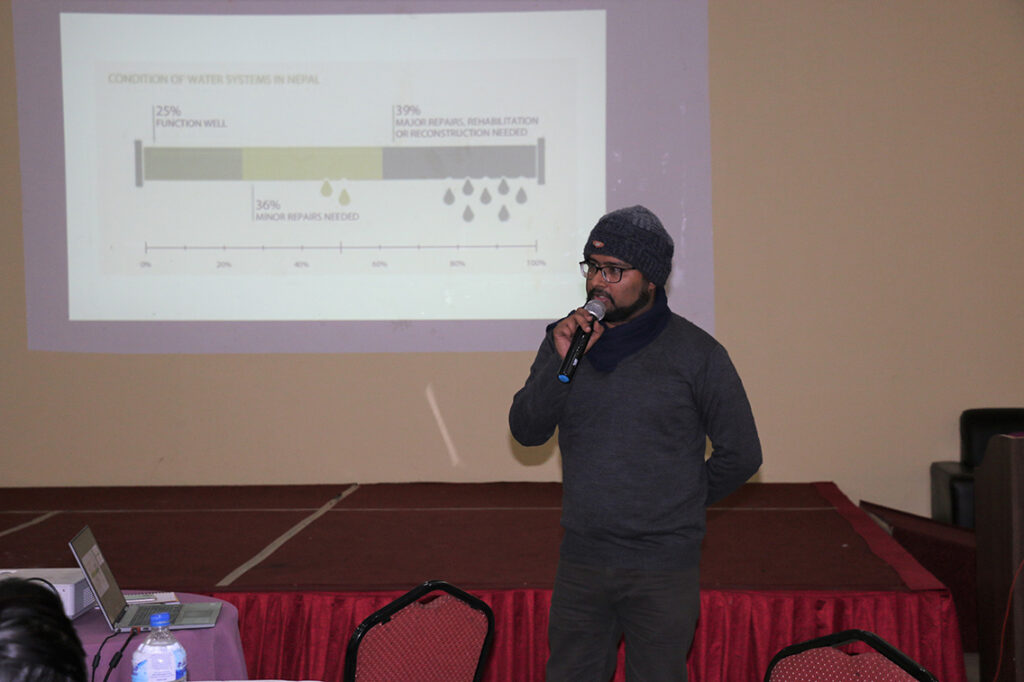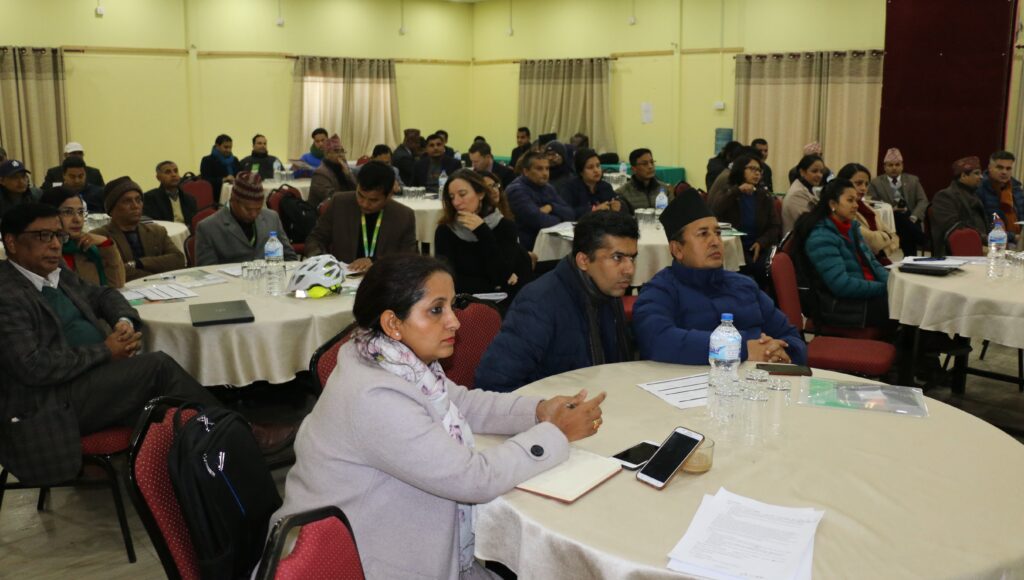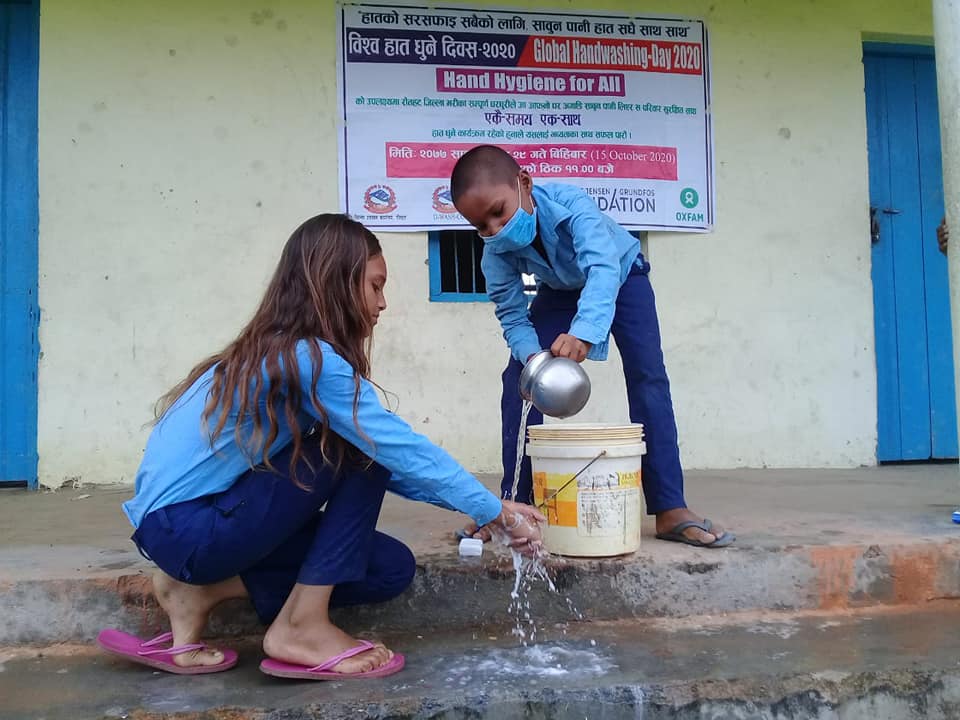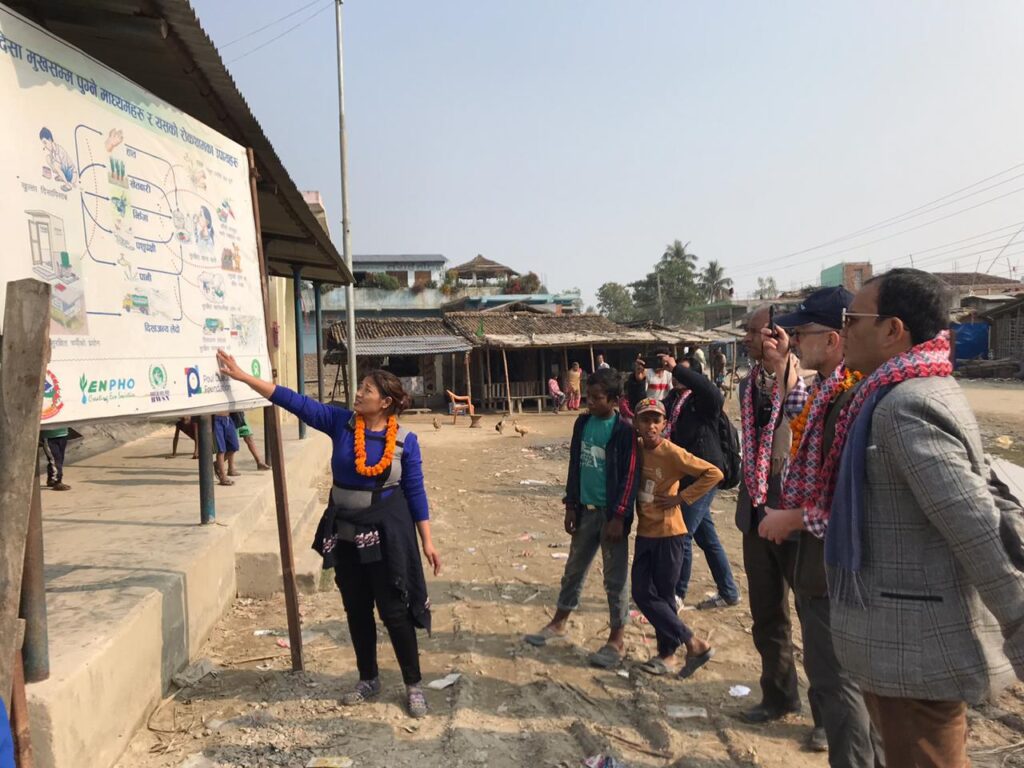In 2018/19, Oxfam, with support from the Foundation, set out to understand what elements or ‘levers’ could make rural water supply systems sustainable. The lack of sustainability of these systems has long been a key barrier preventing rural communities from accessing a long-term, reliable supply of safe water – in Nepal, where Oxfam conducted its research, 75 % of government water supply schemes were failing within less than two years of implementation. The findings were stark but also helped outline some key potential solutions to the sustainability problem.
We found that if a scheme:
- had pipes that were professionally installed;
- had a significant number of households paying a reasonable tariff regularly;
- and received effective service delivery from a service provider,
it would be functional for a much longer period.
“We needed to establish an environment where the findings could be turned into action,” explains Anjil Adhikari. “Only then would we truly be able to install water schemes that would last for the communities they serve. That’s how we turned our findings into a journey – a journey to set up an alternative management model for rural water supply in Nepal.”

Anjil Adhikari presenting the model at a workshop with the Nepalese Ministry of Water. Photo: Oxfam Nepal
Partnering with public authorities
The issue of water scheme functionality is not just a concern for Oxfam, but all practitioners, including the national Ministry of Water Supply in Nepal. An alternative management model would need to be:
- professionally installed and maintained;
- financially supported by the local government and community tarriffs;
- and able to meet the communities’ need for household water connections.
First, we engaged the government. The local governments – or Gaunpalikas – would be key to implement changes on the ground. We reached out to two local governments explaining our findings and the way a new model could mean smarter investment in rural water systems that lasted. They agreed to invest in professionally laid and joined pipes, installed at the required depth – a key element of the alternative management model.

Group Shot of workshop with the Ministry of Water. Oxfam Nepal Country Director Sarah Blin pictured in the middle. Photo: Oxfam Nepal
Strategies to mobilize consumers
Oxfam, together with its local partners, rolled out different strategies to increase community buy-in to household connections. Be it mobilizing community volunteers and partners’ executive board members to go door-to-door to explain the benefits, involving local political figures in the campaign, or rolling out different “early-bird” discounted offers to encourage households to sign-on, we kept the ball rolling. This was an interesting journey as well as a tough challenge – no one had tried the approach of pre-payment for water connections in these areas before. We rolled out the option of payment by installment, so that those with poor economic capacity could still affordable reliable, professionalized water systems.
The team were able to get around 45% of households to sign-up for connections – the highest turnout of sign-ons before construction in the Southern belt of the District. Among many strategies tested in the area, we saw the most positive results from word of mouth endorsements and, surprisingly, from recommendations from politicians.
On-boarding service providers amidst COVID-19
“Setting up a platform for centralized account management and online payment was crucial for transparency and efficiency, but the most important of all was finding a viable service provider who could maintain and service the water systems,” highlights Lyndsay Stecher.
Anjil Adhikari explains what this has meant in practice: “It was interesting but challenging, as the market in rural areas is not currently lucrative enough to attract large organizations, while startup companies lack capital to invest or capacity to absorb risks.”
The team identified a young group who ran a service providing company named Home-sewa that matched with our motive. With them, we conducted in-depth financial analysis and prepared a joint business plan that could help us define and justify how the business would be sustainable. It gave us a clear picture on the scale we need to reach to make this model work.
“Now we were all set to work on the ground. This was when we were hit by the COVID-19 pandemic. The cash collection for the tariffs at the household level was severely impacted, as people lost their jobs. The government was forced to divert most funds for an emergency COVID response. The start-up company was bankrupted by months of lockdown and our progress was slowed by country-wide restrictions due to COVID.”
The Grundfos Foundation generously supported Oxfam’s own activities to respond to the immediate effects of COVID-19 in the community with safe water, handwashing, and hygiene supplies, but we also did not want to lose momentum on our longer-term work for sustainable safe water.
In spite of the difficulties, the team stayed active and executed Plan B. We immediately developed an alternative idea to continue household-level sign-on despite the communities’ new financial difficulties.
“We are now exploring a 0% interest loan to the households, managed through the local Water User Committees, to allow families to buy the fittings required for household tap connections up-front and pay these back in smaller installments over a longer period. We also set out to find a new service provider who could continue to work with us,” says Anjil Adhikari.
Thankfully, we found a silver lining amidst the COVID-19 pandemic: Oxfam Nepal is in the process of building a relationship with a local company whose leadership has proven experience of managing a water supply scheme of 3,000 households with digital payment options – exactly the kind of local skills and experience needed.
What’s Next?
When COVID-19 restrictions begin to lift, we will be able to get to work on the ground with a new service provider. We will finalize a small number of water schemes from our current long-list, confirming who will be the first model in action. We will complete financial analyses of these schemes individually, demonstrating to local Water User Committees the benefits, both financial and social, of the new model.
We strongly believe that the model should offer attractive benefits to its users. For example, with the model, communities can receive professional maintenance services, reducing the frequency of system breakdowns with investments from water users that are equal, or even smaller than, those they are making now. Demonstrating the opportunities and benefits for service providers as well as governments is also key.
We will work on all the issues in stages, step by step. With every smaller action, we move one step closer to our destination – a sustainable water supply for all.
The post was written by Anjil Adhikari in collaboration with Lyndsey Stecher.



